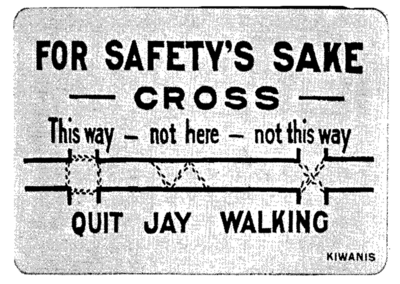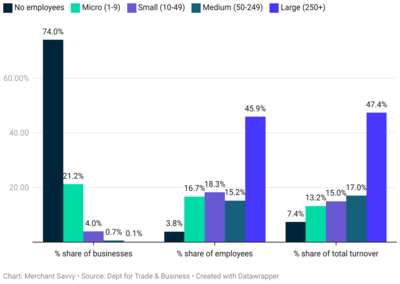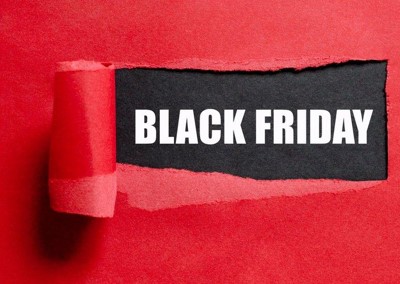The company did start using Santa in advertising in 1933. But Santa had been portrayed almost exclusively in red from the early 19th century and most of his modern image was put together by cartoonist Thomas Nast in the 1870s. In fact White Rock beverages had used Santa to advertise its ginger ale in 1923.
Marketing Inspiration Reimagined
A curated library of cross-sector examples, designed to elevate your thinking and make your work shine.
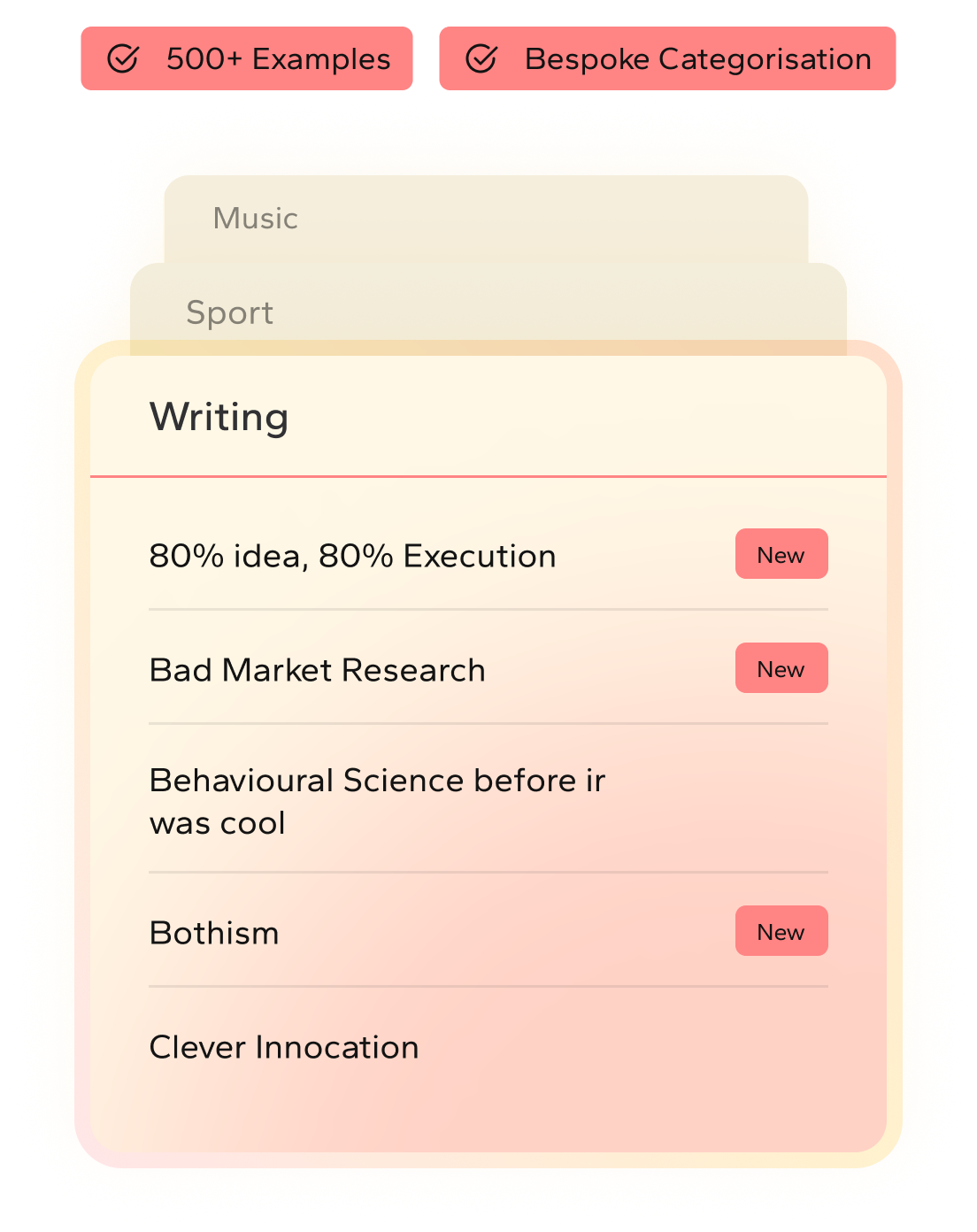
Spotlight
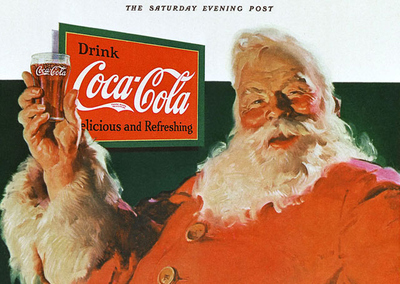
“Coca-Cola designed the modern Santa Claus.”
Latest Inspiration
Chain restaurants scale by offering a consistent experience, but Dishoom bucks the trend; each restaurant has a unique story behind it, informing everything from the décor and music to the lighting and bar menu. For example, the King’s Cross design is based on the events of the Indian independence movement, with old anti-colonial posters on the walls. This approach requires more time and thinking, but it undoubtedly contributes to the restaurant’s cult following.
The term “jaywalking,” referring to crossing the street recklessly or illegally, was coined by the US auto industry to shift blame for car accidents from drivers to pedestrians.
99% of UK businesses have fewer than 250 employees, and 75% have no employees whatsoever.
Spain is one hour ahead of the UK despite being, geographically, on the same time zone. The reason? In 1940, General Franco aligned Spain’s national clock with Germany’s, to show support for the Nazi regime, and it has stayed like that ever since. It’s a key reason why cultural activities take place so late in Spain.
In 2002, MI6 revealed new intel that Iraq was stepping up its production of nerve agents – supposedly being loaded into hollow glass spheres. In reality, it was fake intel that was based entirely on the plot of the movie The Rock, starring Sean Connery and Nicholas Cage (glass containers are not in fact used in chemical munitions). This fictional information was being used by the UK government right until the day of the invasion in 2003.
A Black Friday discount may feel beneficial, but in reality it’s probably not. According to Which?, only 2% of deals are a genuine bargain – the remaining 98% are cheaper or the same price at another point throughout the year. In other words you will rarely lose out by avoiding Black Friday, despite the fancy framing.
80% idea, 80% execution
An idea is only as good as the way it's expressed.
Advertising DOES work on me
Ads can stay in our heads forever, even if we never buy the brand.
Bad market research
Lazy thinking makes it hard to gauge public opinion.
Bothism
In a world of binary thinking, we forget that opposites co-exist.
Clever innovation
Creative ideas for growing a brand.
Comparative advertising gone wrong
Showing another brand can prove superiority, but only if it's clear who is advertising.
Consumer first thinking
Catering to the needs and behaviours of real people - not marketers.
Creativity copies
Forget true originality. Creativity requires external inspiration.
Culture shaped by marketing
Brands largely fail to tap into culture - but a rare few shape it forever.
Cursed success
Awards aren't always beneficial.
Do things that don't scale
To get big you first need to think small.
Easy preferred to best
We like decisions that require little effort.
Familiarity bias
We like what we know, regardless of merit.
Framing effects
Value is a matter of perspective.
Friction as a force for good
In a world of seamlessness, brands can stand out by making life hard for consumers.
Goodhart's law
When a measure becomes a target, it ceases to be a good measure.
Great expectations
Beliefs have the power to shape reality.
Humans behind the data
Numbers are objective, but the people who make them are not.
Inferring meaning where none exists
We use complex theories to explain events, but the truth is more straightforward.
Innovating by saying no
Brands often win by limiting their options instead of expanding them.
Intelligent naivety
It's easy to break category norms when you don't know they exist.
IRL will never die
The internet provides unparalleled freedom, but nothing beats the in-person experience.
Joy of constraints
Forget creative freedom. The best ideas come from restrictions.
Knowledge ≠ power
Information isn't enough to spark action.
Magical language
Words don't just describe our thinking - they shape it too.
Making data concrete
Numbers need context to be meaningful.
Marginal gains
Small changes make a big difference.
Misleading metrics
Don't take statistics at face value.
Myths that aren't true
Our understanding of the world is often based on fiction.
New normal that never was
Covid-19 changed our behaviour forever...or did it?
Old school Behavioural Science
The field was created in the 2000s, but its principles are centuries old.
Penetration led growth
Brands grow by expanding their usage occasions.
Perverse incentives
Be careful what you wish for.
Power laws in the wild
A lot do a little and a little do a lot - and a reminder that averages are often meaningless.
Power of brands
Brands - both people and products - are the ultimate trendsetters.
Power of distribution
Less celebrated than ads, but vital for brand growth.
Products of our environment
Our behaviour is shaped by forces outside our control.
Random legacy
Our rules and frameworks have strange origins.
Redefining the category
Categories are artificial - they can be re-shaped for success.
Revenge marketing
Examples of brands built out of spite.
Say doesn't equal do
Our actions reveal our true intentions.
Selfish innovation
The best source of inspiration is our own frustrations.
Shifting status symbols
The way we show off has evolved over time.
Slowly then suddenly
Not all behaviour is linear: some moments count more than others.
Social desirability bias
We care deeply about what others think.
Tech is neutral, but we are not
Human subjectivity still dictates how technology is used.
The (not so) golden rule
We don't treat others as we treat ourselves.
To speak to many, speak to one
Reaching a mass audience first requires sharp focus.
Topsy turvy behaviours
Products are used in unexpected ways, by unexpected people.
Topsy turvy business models
Businesses have surprising revenue streams.
Veblen goods
The more expensive they are, the more we like them.
When fiction becomes reality
Stories have the power to shape society.
When history rhymes
Nothing is ever as new as we think.
You are not the consumer
The more experienced you become, the more detached you become from the people you serve.
Advertising
Art & Design
Business & Brands
Consumer Behaviour
Food & Cooking
Geography
History
Innovation
Media & News
Music & Literature
Politics & Policy
Polling
Psychology & Science
Sport
Technology
TV, Film & Gaming
Work & Education
Weekly Insights
Bespoke Marketing Ideas
Want smarter marketing ideas straight in your inbox?
Subscribe to the newsletter and get fresh insights every week.


